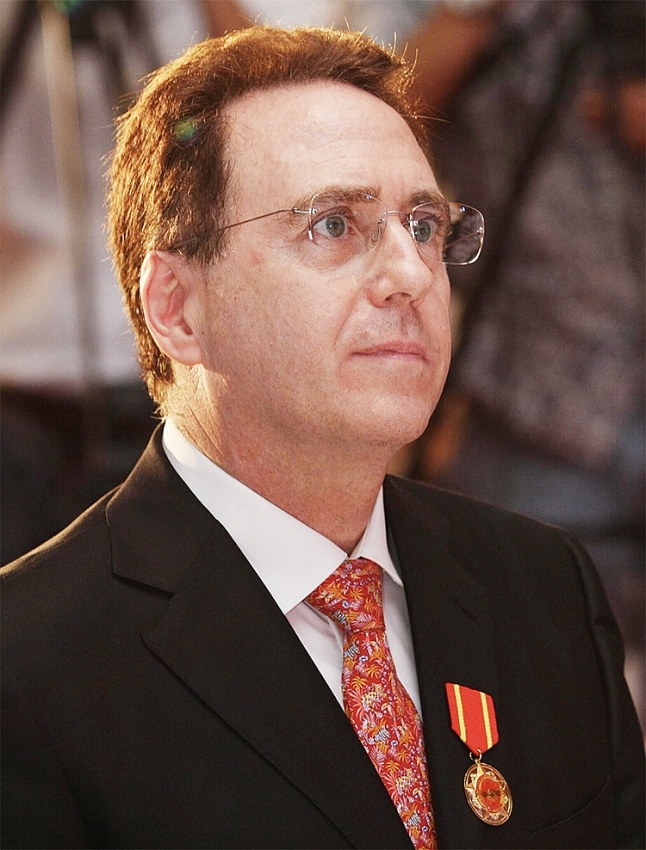Learnings from collective efforts
 |
| Anthony D. Salzman Co-founder American Chamber of Commerce in Hanoi and Vietnam Business Forum |
Having headed successful businesses in Vietnam ever since, I couldn’t help but be struck by another bittersweet milestone in the divergent paths of these two former foes: the United States has now lost more citizens to COVID-19 than it did in the war in Vietnam. Yet this country, which lost more than a million during that conflict, has lost nobody to the coronavirus.
It’s gratifying, therefore, to see the Western media credit Vietnam for its win over the pandemic, but also worth reflecting on what it was in Vietnam’s response that has been missing elsewhere, and particularly in the US. Just how is it that this relatively poor Asian country bordering China stomped out the pandemic with a mere fraction of the resources mobilised to fight it in the US or Europe?
First, Vietnam moved fast to nip the outbreak in the bud. After news of the virus spread in Wuhan and the World Health Organization’s announcement in late January of a global pandemic, Vietnam swiftly instituted social distancing measures.
Hanoi then rolled out a well-rehearsed plan, implementing quarantine guidelines that determined which individuals, buildings, and neighbourhoods needed to be locked down, arranging lodging for thousands of arriving travellers and providing delivery of food and medical care, all of which had been planned out in advance.
The government won hearts and minds through intensive messaging combined with workable solutions, such as rigorous temperature testing before entering buildings, excellent traveller health tracking, sensible quarantine rules, and free meals delivered to the doorsteps of quarantined apartments.
Then there were the trendy music videos, colourful posters, and health messages inserted before every outgoing phone call, gently driving home reminders to wash hands frequently and to stay home except for essential errands. It felt helpful and not unwanted government interference. There was also been a barrage of daily government SMS health updates to every mobile phone – some about social distancing reminders, and others identifying places of potential exposure admonishing visitors there to get tested.
So far, about 260,000 people have been tested, not a large percentage of the population. But with 800 tests per confirmed case, this focused use of testing resources may be more effective than the mass testing of entire populations being pursued in many other countries.
Vietnam’s measures may at times seem like martial law, but what the foreign press has missed is the population’s co-operation, and its eager and determined willingness to mobilise en masse to preserve public safety.
Fuelled by positive reports in the state media about Vietnam’s success in fending off the pandemic, the nation’s cities embarked on a spontaneous and unsanctioned contest to outdo the others, including which could contribute more to a food programme for people under quarantine. The result has been a nationwide competitive pride akin to that generated for local and national sports teams. Everyone wants to do their share to be part of the success.
Yes, the economy is suffering, and the individual hardship is great. Some measures seem strict, such as enforcing the use of face masks with fines equal to what for most people is a day’s wage. But it is a far cry from prison punishments imposed elsewhere. And there is a common feeling that, if everyone co-operates to prevent the virus from spreading, everyone will be safe again as quickly as possible.
But the public’s support to fight the pandemic did not arise from state policy. The Vietnamese people united in tacit agreement to pay the temporary price of strict social distancing to liberate themselves from the coronavirus.
Why can’t America, a nation born from the same collective urge to expel an unwelcome imported threat, do the same? US culture is often unable to sacrifice individualism easily or quickly. Americans can say we’re all in this together, as a people.
But we’re not – not the way Vietnam is. We Americans might excuse ourselves in the name of freedom, rejecting central government co-ordination. But without an enemy attack like Pearl Harbour or 9-11 to unite us against a common enemy, America seems incapable of harnessing the kind of collective action that made it so formidable in past crises.
The price America pays for letting individuals and cities find their own solutions is that this virus will likely become part of American life until a vaccine is found.
Americans should draw lessons from how Vietnam handled this pandemic. There will someday be another pandemic, another invader, and the US will need to summon its collective strength to expel another new threat. Yes, Americans will need to find the kind of collective will and community spirit that have produced victory in Vietnam.
What the stars mean:
★ Poor ★ ★ Promising ★★★ Good ★★★★ Very good ★★★★★ Exceptional
Themes: Safe and Sound Vietnam
Related Contents
Latest News
More News
- List of newly-elected members of 14th Political Bureau announced (January 23, 2026 | 16:27)
- 14th Party Central Committee unanimously elects To Lam as General Secretary (January 23, 2026 | 16:22)
- List of members of 14th Party Central Committee announced (January 23, 2026 | 09:12)
- Highlights of fourth working day of 14th National Party Congress (January 23, 2026 | 09:06)
- Press provides timely, accurate coverage of 14th National Party Congress (January 22, 2026 | 09:49)
- Press release on second working day of 14th National Party Congress (January 22, 2026 | 09:19)
- Minister sets out key directions to promote intrinsic strength of Vietnamese culture (January 22, 2026 | 09:16)
- 14th National Party Congress: Renewed momentum for OVs to contribute to homeland (January 21, 2026 | 09:49)
- Party Congress building momentum for a new era of national growth (January 20, 2026 | 15:00)
- 14th National Party Congress’s opening: Great aspirations, steady steps (January 20, 2026 | 09:50)

 Tag:
Tag:





















 Mobile Version
Mobile Version